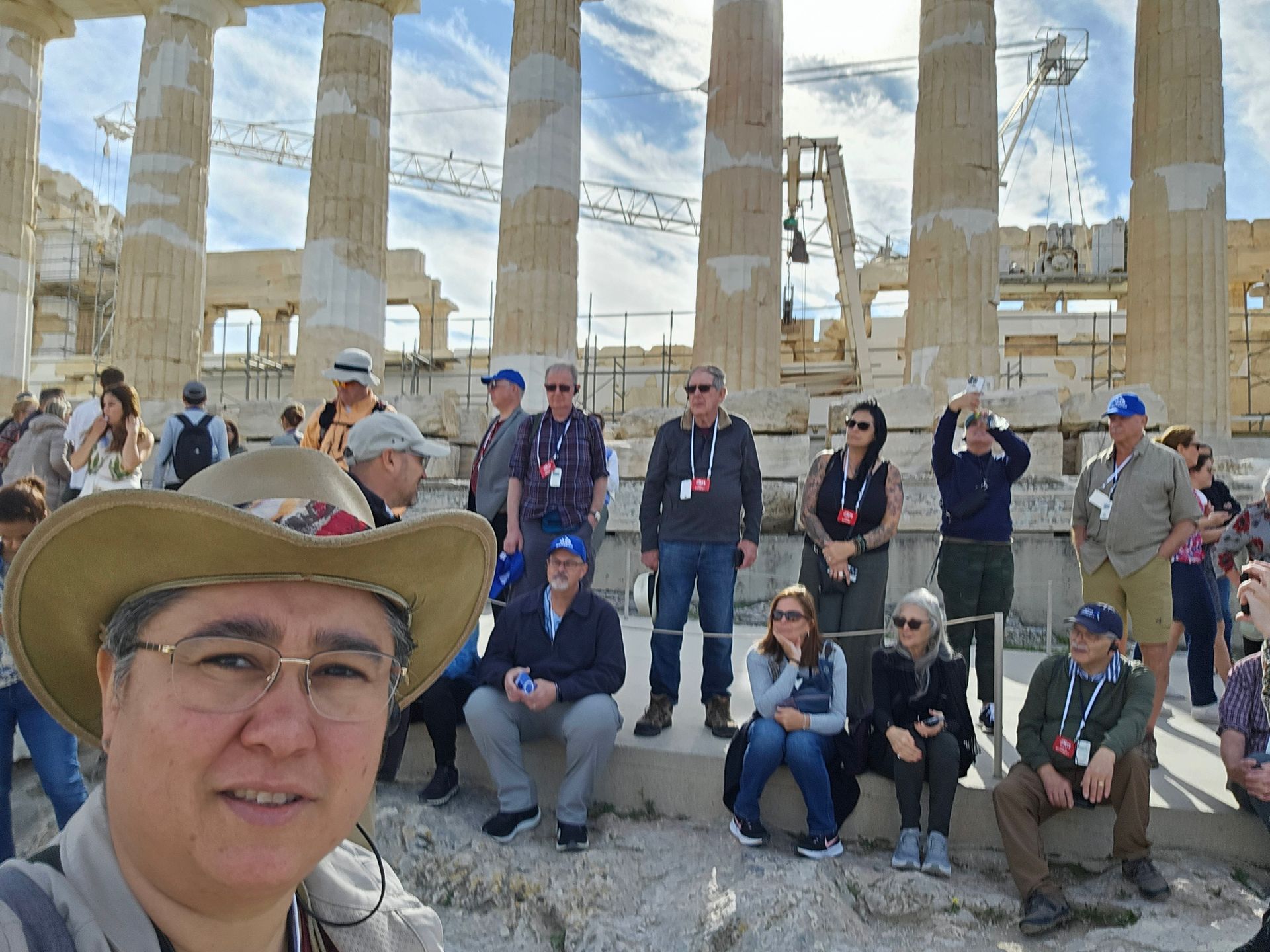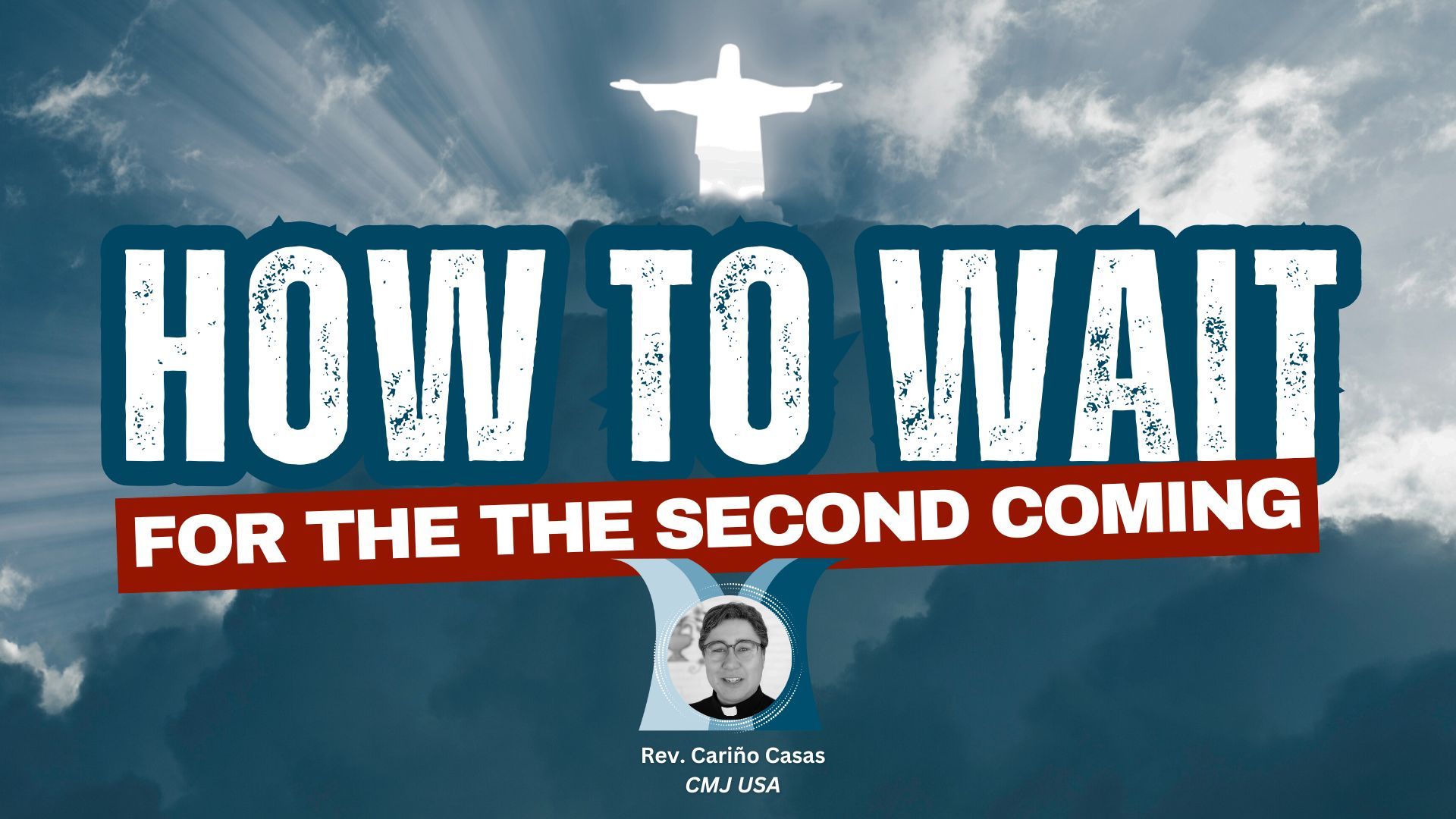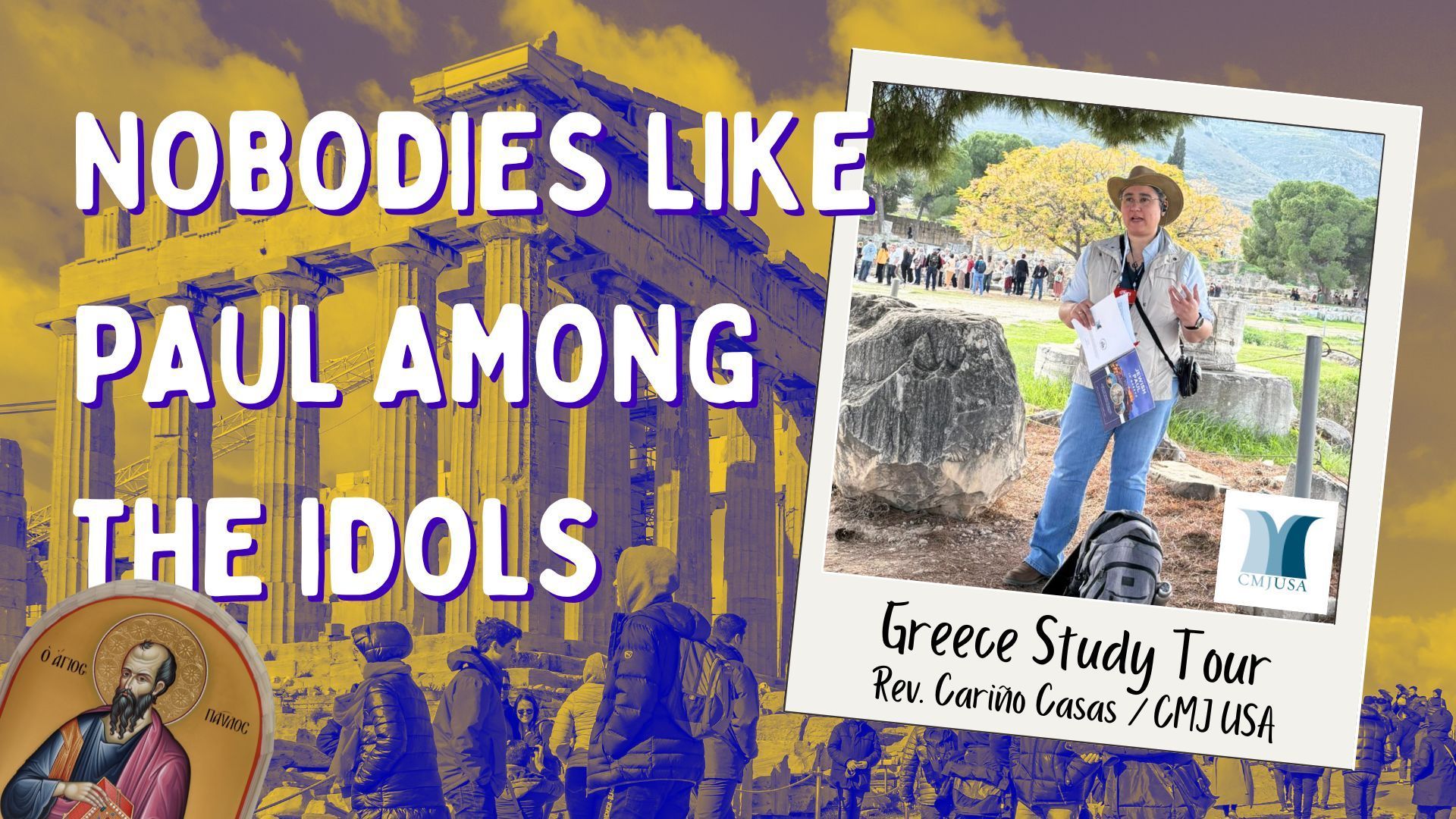Sermon: Messiah will return to regather Israel & the nations
God, in the Scriptures, makes redemptive promises not just to Jerusalem but to the nations of the war-torn Middle East
Third Sunday of Advent – Church of the Savior, Ambridge, PA
Zephaniah 3:14-20
Psalms 85
Philippians 4:4-9
Luke 3:7-20
We’re already at the third Sunday of Advent. Christmas is nearly upon us!
Advent is my favorite liturgical season. Yes, we have the joy of Christmas. In the Spring we have the relief and joy of Resurrection Sunday.
So why is Advent my favorite? The season of Advent does double duty. Yes, it prepares us for Christmas, prepares our hearts to once again receive the newborn king and restart our journey toward Jerusalem, Calvary, and the empty tomb.
But Advent is my favorite because we also get to talk about Jesus coming back! We get to talk about our reward, finally seeing him face to face and dwelling with him forever.
Three weeks ago we left the green season of Ordinary Time for Advent. The long green season, the extended summer from Pentecost to Christ the King Sunday represents liturgically the time we actually live in. We live in the long season of waiting after Pentecost.
The Kingdom of God is here already, confirmed by the gift of the Holy Spirit. Those of us who trust in Jesus have the Holy Spirit. We are therefore portals of the Kingdom of Heaven. We call Heaven down to earth when we pray for people’s healing, deliverance, and salvation.
But let us not forget that the Holy Spirit is the down payment, the guarantee (2 Cor 1:22, 5:5; Eph 1:14), of all the other promises God has made to his people in all of the Bible, like Jesus’ promises of eternal life but also the promises of the Prophets, like the one we find in Zephaniah.
The Holy Spirit reminds us that the Kingdom of God is here already among us as we gather in Jesus’ name. Let us remember that the Kingdom of God is also not yet. We are still waiting for Jesus to come back. We are still waiting for the justice and mercy worked on the cross to play out across our war-torn planet. Creation – polluted and abused – still groans for the return of its Creator and its restoration to what it was before Adam and Eve ate the forbidden fruit.
In my experience, Anglicans don’t talk a lot about the return of Jesus. We try to focus on imitating Jesus, taking his words seriously and making sure his words transform our hearts and minds. All good. We’re all broken humans being remade into the image of Christ.
But here, in these four weeks of Advent, we should relish thinking and talking about Jesus’ return as much as we think and talk about what we want for Christmas.
That’s why I love Advent. Because the season prompts us to talk about Jesus’ coming, both his birth and his triumphant return.
As most of you know, I work for the Church’s Ministry Among Jewish People. I came today to give the Mission Moment update, which I will later.
Talking about the return of Jesus is an important part of our testimony to our Jewish neighbors and to all who don’t yet accept Jesus as Lord and Messiah.
Several Christmases ago, when I was in Jerusalem, I had a most interesting conversation with an Orthodox Jew. It was Christmas Day. I’d just left church after Christmas lunch. I was wearing a Santa hat.
As I walked home, I passed a familiar street busker dressed, as he always was, in the traditional Orthodox dress of his sect– black pants and coat, white shirt, black hat. He was often in the outdoor mall singing and playing his guitar. His song caught me this day, so I stopped to listen. After a song or two, I went to drop some shekels into his guitar case. He stopped playing to give me a tract.
“No, thank you,” I said to him in Hebrew, “Yeshua is the Messiah.” He rolled his eyes, put the tract back in his pocket and spoke to me in perfect American English.
“We know all about that guy. He’s not the one.”
“What about the signs he worked?”
“I can do any of them,” he said to me. “Ask me and I’ll do one right now.”
“Can you go up to the Temple Mount now and claim the throne of David?” I asked him.
He looked at me a moment. “He said he was coming back! Where is he?!”
“I am waiting for him,” I replied. “And I know you Jews have been waiting for Messiah twice as long as us Christians. Let’s wait for him together.”
He rolled his eyes again and went back to playing his guitar.
But you know what, our Jewish neighbors – the ones that believe in God – are waiting for Messiah to come. They are waiting for God himself to come and fulfill all his promises.
Zephaniah 3 has one of those wonderful promises concerning the Jewish people:
20 At that time I will bring you in,
at the time when I gather you together;
for I will make you renowned and praised
among all the peoples of the earth,
when I restore your fortunes
before your eyes,” says the Lord.
Right now Israel as a nation is hated by so many. The Jewish people are hated, as evidenced by the skyrocketing antisemitic acts in Europe and the United States. Zephaniah proclaims the God’s promise that the Jewish people will one day be renowned and praised.
We Christians focus on Jesus having fulfilled Isaiah 53, the promise of the righteous Israelite that dies for the sins of Israel and the nations. Let’s not forget other promises in the Prophets that have God himself coming down to the Mount of Olives in Jerusalem to judge and convert the nations and regather the scattered people of God and restore peace and righteousness in Jerusalem and beyond.
First, why are reading from Zephaniah 3 today, the 3rd Sunday in Advent? The calendar of readings are meant to tell us something about Jesus.
In Luke, we see John the Baptist preparing the Jews of his day for the coming of the Messiah. John is certainly expecting a Messiah that will cleanse Israel of its sin and its sinners with fire. He warns the religious leaders to not count on their Jewish genealogy to give them a pass. He warns everyday people to love their neighbors and not take advantage of vulnerable people.
John says he is not the Messiah and that the Messiah will come with the Holy Spirit and will separate the repentant from the sinners. That’s why John is teaching people how to repent. The tax collectors, the soldiers, and the religious leaders were oppressing the people. John is warning them to stop.
The Zephaniah reading resonates with John’s message. See in Zephaniah 3:19 that God says when he comes, he will deal with the oppressors.
We here believe that Jesus is the God of Israel made flesh. He is God with Us, Immanuel. So then, Zephaniah is about Jesus.
What does Zephaniah tell us about Jesus?
This passage we read in Zephaniah 3 is the last and best part of the little book. God is talking and he’s calling Israel to rejoice. He’s done disciplining them. God is living among them and rejoicing and singing over his people. Yes, God sings! He sings over his people like a mother sings over her child.
God is talking to Israel in this passage, to the Jewish people.
Is God singing over us Christians? Yes! Be encouraged. God rejoices over you and quiets you with his love. We can definitely take these promises to ourselves because we have pledged allegiance to the Messiah of Israel. When decide to follow Jesus, we are grafted into Israel, we are made naturalized citizens of the Commonwealth of Israel (Rom 11, Eph 2). The promises of God are for us.
The promises of God are still valid for our Jewish neighbor, too.
How is that if they do not believe in Jesus? Because, if the Kingdom of God coming in Jesus is here now but also not yet, then not all is yet fulfilled here on earth. We’re in this in-between time of God’s Kingdom expanding. So there is space for our Jewish neighbor’s expectation that God will fulfill his promises to Israel.
We know they will be fulfilled in Jesus Messiah. We must proclaim this until he comes.
Yes, Jesus died for our sins. Jesus died so that God can dwell with humanity. That’s what God promised Israel all along. From Adam through Malachi – God has been promising Israel that he will live with them forever. He will fulfill the promises made to Abraham and David and the promises proclaimed by the Prophets.
We who follow Jesus have him now through the Holy Spirit. There will be a day when the whole world will have him in person, ruling and reigning from Jerusalem. If we love him, we will rejoice at his coming. Those that reject him will dread his coming.
When people find out I’m with the Church’s Ministry Among Jewish People or that I lived in Israel for several years, they immediately ask me about Israel-Palestine conflict. Some expect me – as a teacher of our Jewish roots – to care more about Israel’s right to their ancient homeland. Others want me – as a good Christian – to care more about Palestinian suffering.
The greater context of Zephaniah helps us to care about both Israelis and Palestinians because we will see that God cares about all the nations – Israel, Gaza, Syria, Lebanon and all the rest.
Who was Zephaniah and why did he write this prophecy?
Zephaniah seems to be from the royal family of Judah, a distant cousin of King Josiah and a descendant of King Hezekiah. Hezekiah was a righteous king, but his heirs Manasseh and Amon were idolatrous and corrupt. Government officials decided Amon had to go, so they assassinated him and put his 8-year-old son Josiah on the throne, controlled by a regent until he was an adult.
When are we going to see Game of Biblical Thrones on HBO?
Josiah is famous for taking down the idols and restoring the reading of Torah once he comes of age.
Zephaniah probably writes while Josiah is still a boy. Perhaps Josiah institutes his reforms because he hears Zephaniah’s call to repentance and promise of God’s love.
The book of Zephaniah is just three chapters long.
In Chapter 1, Zephaniah calls out the wealthy for their idolatry, violence, fraud, syncretism, and even agnostism.
…8 “I will punish the officials and the king’s sons and all who array themselves in foreign attire. 9 On that day I will punish …those who fill their master’s house with violence and fraud. … 12 I will punish the men who are complacent, those who say in their hearts, ‘The LORD will not do good, nor will he do ill.’ 13 Their goods shall be plundered, and their houses laid waste…”
In Chapter 2 and 3, we see more warnings for Jerusalem as well as for the nations around Israel: Canaan, Ammon, Moab, Assyria and more.
Geographically, those nations are the same places affected by war right now. Gaza is ancient Canaan, the land of Philistines; Assyria covered in part what is now Iraq and Syria; Jordan covers what was Moab and Ammon.
In Zephaniah’s time, he heard of an army invading from the north. He saw that invasion as God’s judgment.
What do we make of the ongoing fighting throughout the Middle East today? The fall of Damascus a week ago was shocking, as shocking as the assassination of the Hezbollah leader earlier this year. Jordan is bracing for the ripple effect from Islamists taking Syria. Turkey is agitating against the Kurds in northern Syria and western Iraq.
Is God judging Israel and the nations around her?
I am no prophet. What I can say with certainty is that God is always calling us and all the nations to repentance. Since the Tower of Babel, God has been calling the rebellious nations to repent and return to him.
Zephaniah, in chapter 2, issues a call to repentance and announces there is a door to mercy for Israel and for their neighbors.
First, the call goes to Israel:
2:1 Gather together, yes, gather, shameless nation, before the decree takes effect —before the day passes away like chaff— before there comes upon you the burning anger of the LORD, before there comes upon you the day of the anger of the LORD. 3 Seek the LORD, all you humble of the land, who do his just commands; seek righteousness; seek humility; perhaps you may be hidden on the day of the anger of the LORD.
“Perhaps you may be hidden on the day of the anger of the LORD.” Interestingly, that’s what Zephaniah means, Hidden by God.
God goes on to declare judgment over Israel’s neighbors: Canaan, Moab, Ammon, Assyria. But then he says that these enemy nations will call upon the LORD and serve him.
3:9 “For at that time I will change the speech of the peoples to a pure speech, that all of them may call upon the name of the LORD and serve him with one accord.
Do you hear that? “I will change the speech of the peoples.” I hear echoes of the Tower of Babel and of Pentecost. At Babel, God changes the speech of the peoples because they are in rebellion. At Pentecost, all the foreigners in Jerusalem hear Jesus’ disciples praising God in their own language.
From Acts 2:
7 Are not all these who are speaking Galileans? 8 And how is it that we hear, each of us in his own native language? 9 Parthians and Medes and Elamites and residents of Mesopotamia, Judea and Cappadocia, Pontus and Asia, 10 Phrygia and Pamphylia, Egypt and the parts of Libya belonging to Cyrene, and visitors from Rome, 11 both Jews and proselytes, Cretans and Arabians—we hear them telling in our own tongues the mighty works of God.
The regions mentioned here are today called, Iran, Kurdistan, Iraq, Turkey, Palestine, and Saudi Arabia, among others. Those were some of the first peoples to hear of the glory of Jesus on Pentecost.
The end of Isaiah 19 speaks of a time when all the nations of the Middle East – including Israel – will worship God together.
There’s an amazing promise in Zechariah 9 concerning Gaza. God is proclaiming judgment on the nations around Israel.
5 Ashkelon shall see [God’s judgment], and be afraid; Gaza too, and shall writhe in anguish; Ekron also, because its hopes are confounded…. I will cut off the pride of Philistia. 7 I will take away its blood from its mouth, and its abominations from between its teeth; it too shall be a remnant for our God; it shall be like a clan in Judah…
This passage lists the Philistine cities. You will recognize that some of those cities still exist in and around the Gaza Strip, where Palestinian people live.
Where did the name Palestine come from? It is a Latinized way to say Philistia. The Philistines do not exist anymore, but the Arab peoples of the Holy Land have taken this name – Palestine – upon themselves. And God says, through Zechariah, that the peoples living in the area we call today the Gaza Strip will be redeemed as a remnant. God will cut off their pride but they’ll be folded into God’s people, not by domination but by God’s mercy. And we know that God’s mercy comes through Jesus the Messiah.
Even some Jews who won’t accept Jesus’ Messiahship acknowledge that he changes hearts.
Back in January, a headline caught my attention: Gaza needs Jesus, says Orthodox Jew. The piece was written by Jonathan Feldstein, a devout Jew who feels called to fellowship and collaborate with Christians.
Feldstein wrote, “Despite being an Orthodox Jew, I am praying for Gazans to get a little Jesus in 2024. … The only chance I see for real peace is that Gazans become real Christians.” Feldstein may not believe Jesus is for him, but he knows that Jesus transforms hearts, that Jesus changes enemies into loving family.
The whole world needs Jesus! And God is determined to regather to himself the nations he scattered at Babel. That’s why God called Abraham, to bless the nations that rebelled at the Tower of Babel. Jesus, the Son of David, the Son of Abraham is the one who is in the process of regathering Israel and the nations.
We, the followers of Jesus, know he will do it! So let us proclaim the good news to the nations! Let us rejoice and exult with all our hearts!
For the Lord has taken away the judgments against us;
The King of Israel, Jesus the Lord, is in our midst;
let us never again fear evil.
For the Lord our God is in our midst,
a mighty one who will save;
he is rejoicing over us with gladness;
he is quieting us by his love;
he is exulting over us with loud singing.
And He will come back to establish peace on earth, as he said.
Maranatha! Come Lord Yeshua! Amen.
Blessed by this post? Ready to sow into the work of CMJ? No gift is too small. we are blessed by your partnership.



